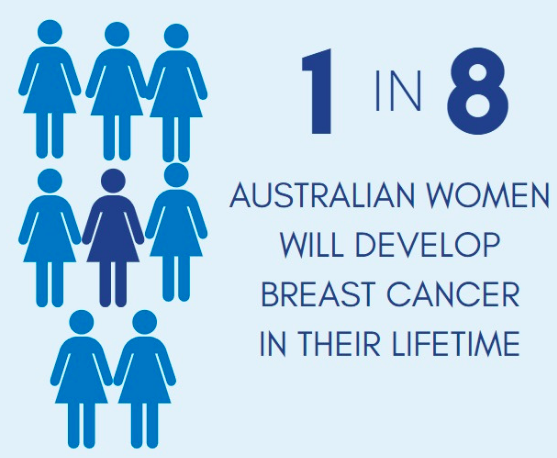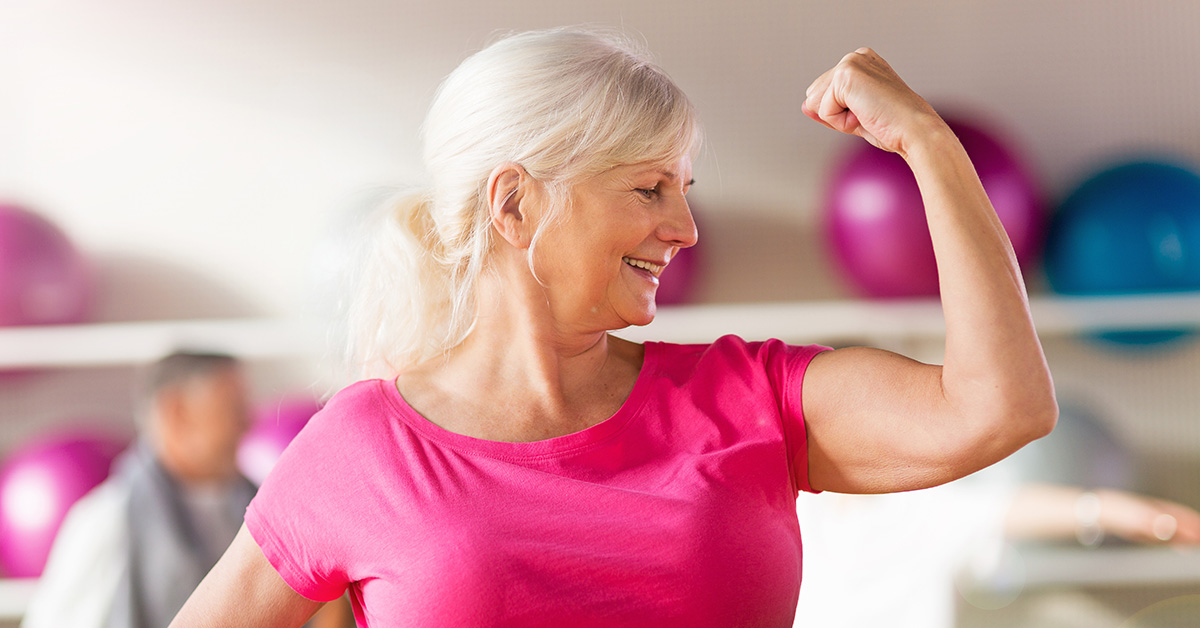Breast cancer is the most common cancer in women, affecting an estimated 19,807 Australian women in 2020. This fact illustrates the importance of breast cancer awareness month. Club Active’s membership demographic is predominantly over 50, so we wanted to share some health insights from our allied health professionals this October. An accredited exercise physiologist can help anyone affected by breast cancer by assisting with treatment side-effects and muscle strengthening.
Breast cancer statistics

• Approximately 79% of new cases occur in people aged over 50, with the average age of a first diagnosis being 61 years old.
• 5–10% of breast cancers are due to a family history of the disease or a specific genetic mutation.
• Although the 5-year survival rate for breast cancer is 91%, the disease still kills approximately 3000 women and 35 men per year.
—-
The benefits of exercise and breast cancer
Alttough exercise may not improve cancer-related quality of life, it can improve:
• Self-esteem
• Physical fitness
• Body composition
• Chemotherapy completion rate without causing any additional adverse events.
• Staying physically active during treatment can also lead to a decrease in symptom intensity, fatigue, anxiety and difficulty sleeping.
The type of exercise recommended when recovering from breast cancer
Some breast cancer treatments can lower your body’s bone density, increasing the risk of fractures. There is strong evidence that resistance-based training at a moderate to high intensity can help slow this process down. It is essential that this type of training be under the supervision of an experienced exercise physiologist.
How can allied health professionals help with my breast cancer recovery?

Exercise will need to be specific to you and your health needs. A Club Active accredited exercise physiologist will help determine an appropriate starting point based on your previous training experience, current fitness level, and what part of the breast cancer timeline you are at.
Club Active Exercise Physiologists can help anyone affected by breast cancer. An initial assessment will discuss your health and well-being. After completing an assessment, you will receive an individualised program specific designed to you and may include reducing the side effects of treatment.
–
To learn more about working with an Exercise Physiologist, please contact our friendly team today.
Source: Breast Cancer Network Australia, Breast Cancer Foundation.

